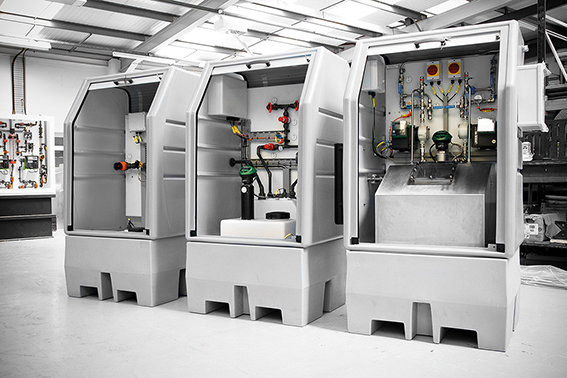Lack of investment in maintaining chemical dosing systems can be an expensive mistake.
Graham Ward of WES highlights the risks and costs associated with poor maintenance, outlines what is needed to keep equipment working well and stresses the value of regular system audits to water companies and contractors alike.
To ensure that water and wastewater treatment operations are managed safely, perform cost-effectively and comply with regulations, their chemical dosing systems must be reliable and efficient. This requires commitment to the correct levels of servicing, which can be a major challenge in view of the many other pressures on business resources in this sector. Along with increasingly stringent regulatory demands and limited budgets, they may include shortages in both the skills and the capacity needed to maintain systems properly. Whatever the difficulties, neglecting the health of a chemical dosing system is a false economy whose likely outcomes are:
Shortened asset life
Poorly maintained dosing equipment has to be replaced more frequently, adding to the owner’s capital expenditure. As explained below, ongoing savings achieved through due care for systems will help with operating expenditure budgeting too. These benefits combine to allow effective planning and optimisation of total expenditure (TOTEX).
Breakdowns
Systems in poor condition are prone to breaking down unexpectedly or even catastrophically. The result may be costly unplanned downtime and loss of productivity, compounded by the expense of repairs and replacement parts. A well-maintained system, by contrast, operates dependably and gives the business greater resilience.
Inefficiency
If a dosing system is not regularly serviced, and recalibrated where necessary, it may inject much larger quantities of a high-priced chemical than are necessary. Inefficiently functioning equipment may also waste energy.
Injury
A faulty or deteriorating dosing system may endanger employees and customers through spillage of hazardous chemicals. Along with direct impacts on the people injured, incidents of this kind can cost businesses through sickness absence, compensation claims and damage to their reputation.
Environmental harm
When a malfunctioning system injects too little chemical, wastewater may be discharged into the environment without sufficient treatment. If it injects too much, the discharge may be toxic. Significant chemical leaks or untreated discharges due to faulty equipment can be devastating to rivers, streams and other habitats. On top of the cost of fines, enforcement undertakings and remedial works, the business could face a PR disaster.
What good maintenance involves
Dosing pump condition and performance are a key focus, but thorough servicing goes much further. A specialist engineer will typically:
Check pump calibration and recalibrate where appropriate
Inspect and replace worn pump components
Examine and clear inline filters
Clean and remove blockages from injection quills
Flush sludge or solids from chemical storage tanks
Identify leaks in any part of the system
Assess condition of all equipment
Test performance
Confirm bund security
Importantly, there should also be routine auditing of the equipment’s specification to make sure it still meets the application’s requirements. For example, if factors such as the volume or quality of water treated have changed, or if different chemicals are being used, reconfiguration may yield better results and economy.
Audits and servicing packages
Given that sites vary in their conditions, applications and equipment set-ups, WES offers operators a free, no-obligation, initial on-site survey to determine their specific maintenance needs. As part of this, chemical dosing systems are audited against current standards and best practice – regardless of their age or manufacturer. WES then sends written reports, including condition assessments and advice on any repair or upgrade work needed, and prepares details of an appropriate service package with a fixed-price quotation.
While bespoke packages can be created for businesses with very specialised requirements, in most cases there is a simple choice between three options:
Bronze – Scheduled Maintenance Package. One annual scheduled maintenance visit covering all the essentials of good servicing.
Silver – Planned Preventative Maintenance Package. As above, but with three additional quarterly ‘health check’ visits and access to free technical assistance via a telephone helpline.
Gold – Product Care Package. All Bronze and Silver package benefits plus priority repair and breakdown call-out assistance, for which WES maintains immediately accessible stocks of service parts.
In addition, WES provides related services like component replacement, system upgrading, re-purposing or relocation, control modification, operator training and equipment hire. Considering the many ways in which poorly maintained chemical dosing systems threaten the functioning and profitability of water businesses, investing in this kind of support with their specification and care makes perfect sense.
www.wes.ltd.uk




